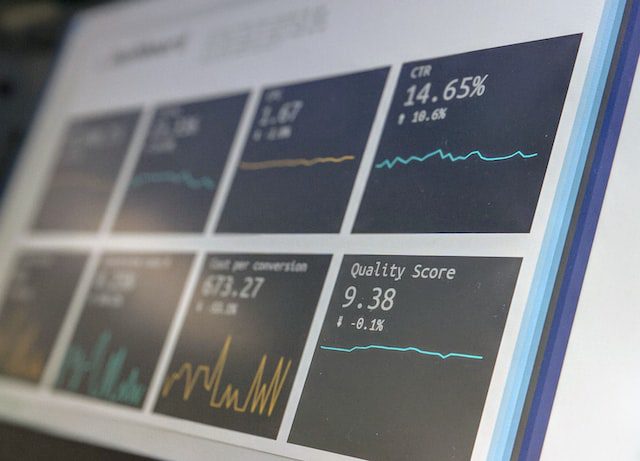
The age of technology is upon us, and with it comes an unprecedented level of data production, collection, storage, and processing. As everyone becomes more reliant on digital tools to make lives more accessible, it’s essential to understand the implications of this new reality. To ensure that the data remains secure and private, there are a few key things you need to keep in mind when dealing with data issues in the tech age.
This blog post will explore six essential considerations for anyone who wants to stay one step ahead of malicious actors seeking access to sensitive information.
All personnel handling data must be adequately trained to ensure that an organization’s data remains secure and private. This means having a solid understanding of data security principles and the ability to assess risk and identify potential threats.
Organizations should also cultivate a culture of data literacy among staff, encouraging them to stay up-to-date with the latest data management and security trends. This includes providing training opportunities so that everyone knows their responsibilities regarding protecting data.
In addition, organizations should regularly audit user accounts to ensure that only authorized personnel are accessing sensitive information. They should also implement regular security and compliance checks to ensure that data is always kept safe. When looking for consultants on data literacy and security, check for certifications and industry experience to ensure the highest quality of service. The broad exposure helps in understanding and utilizing the data more efficiently. At the same time, it helps to steer clear of any compliance issues.
Every single data set needs to be handled ethically. This implies that users are obligated to protect the privacy of others and obtain information only for reasons considered genuine. In addition, data should never be utilized without receiving express authorization or approval, as this constitutes a breach of trust and may have significant repercussions from a legal standpoint.
In addition, processes should be in place to guarantee that necessary precautions are taken while processing data, such as encrypting and anonymizing it. These protocols should be in place. Every staff member that handles data ought to receive proper training on the most effective procedures for keeping it secure.
When dealing with client data commercially, companies should put transparency and fairness at the top of their priorities list. This indicates that customers should be able to understand how their personal information is being used, and they should also have the choice to opt out of having their data shared or gathered.
Organizations must proactively protect their data from unauthorized access or tampering. This includes implementing firewalls and security software, regularly patching and hardening systems, and auditing data access logs. Organizations should also use multi-factor authentication for all user accounts to ensure that only authorized personnel can access sensitive information.
The common area which people overlook is physical security. The data is stored in computers, which can be stolen or broken into, so companies must take measures to secure their equipment physically.
However, even with all the technical measures in place, it’s still essential to have a security culture in the organization. This means that staff should be aware of their responsibilities when it comes to protecting data, and they should follow best practices when handling sensitive information.
Organizations must properly manage their data to ensure it’s always available, secure, and accessible. This means having the right solutions to store, back up, and protect data. Companies should also implement systems that allow them to quickly access, analyze and report on data as needed.
Data management solutions should be tailored to the organization’s specific needs and regularly updated to stay up-to-date with the latest security protocols. Lastly, these solutions should have mechanisms in place to allow for quick disaster recovery so that the organization can respond appropriately if there is a data breach or other emergency. When choosing data management tools, organizations should prioritize secure, reliable, and cost-effective ones. Check the user ratings and reviews of the solutions to ensure they are up-to-date with the latest industry standards.
To guarantee that data is appropriately stored and used, the successful utilization of data administration systems is necessary. Data warehousing solutions are quickly growing in popularity as they offer a safe repository for storing massive amounts of structured and unstructured information. These warehouses also supply consolidated storage capabilities which make it simpler to access your essential data when you need it most.
By tailoring a data warehouse to meet your business’s specific needs, you open up the ability to conduct real-time analytics. Moreover, it effortlessly integrates with other BI tools and software that streamlines the entire analytical process for rapid results. This makes data warehouses an invaluable tool for any organization looking to optimize their operations through smarter insights derived from a comprehensive analysis of available information.

As you focus on data collection, it’s important to remember that the data needs to be analyzed for it to be helpful. Data analysis helps organizations uncover patterns and insights from their data, which can help inform decision-making and optimize operations.
When assessing data, organizations should strive to combine both qualitative and quantitative methods.
Quantitative analysis examines numerical trends, while qualitative evaluation involves understanding the context of the numbers for a more comprehensive view. Combining these two approaches provides greater insight into any given situation or dataset. Companies must recognize the relevance of data evaluation in order to make sound decisions that positively affect their operations, better customer service and keep stakeholders apprised. But more crucially, it uncovers weak points as well as new prospects for growth. An expert analyst with a knack for deciphering patterns is essential if an organization wants to interpret its data effectively.
There are several steps that organizations can take to protect their data in the tech age. When you follow best practices for data security, put proper solutions in place, and train personnel on data handling techniques, companies can be sure that their information remains secure and private.